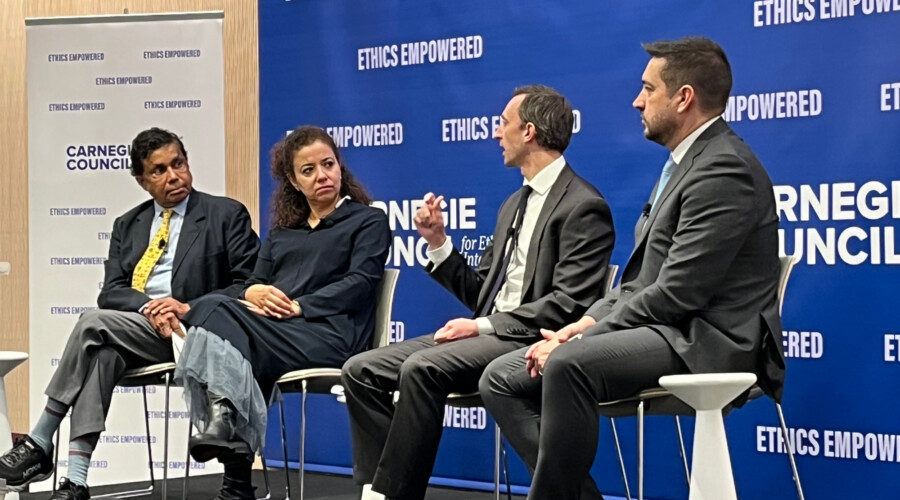Is secrecy in foreign policy an unfortunate yet necessary way to maintain national security? Or does the lack of transparency in state decisions undermine democracy?
A state's fundamental goal is security for its people. Regimes, which control the legitimate use of force, compete, and openness can undermine security. Military or technological ascendancy can be squandered. Strategic advantages can be lost. Confidential sources (spies) can be compromised.
In contradiction, an underlying tenet of democracy is that the free flow of ideas is crucial for a democracy's health.
So, there are democratic reason's to minimize a state's natural tendency toward secrecy in foreign affairs. There is a political tension between transparency and secrecy.
Unfortunately, there are other reasons for secrecy. For individuals it is safer to stamp everything rather than to risk careers for negligence. Secrecy brings an illusion of importance. Bureaucratic rules impel extensive classification schemes.
The result is detailed in The Washington Post series, "Top Secret America." Secrecy has become imbedded in the national foreign policy process, on a scale that overwhelms diplomacy, foreign aid, international exchange, and international information put together.
For instance, while unknown, the spending on secrecy is at a minimum of $75 billion, while the State Department's entire budget is about $17 billion.
However, as 9/11 proved, the world can be hostile. Secrecy is one tool for deflecting that hostility.
What do you think? Does "Top Secret America" need to be pruned? Does the scale undermine democracy? Or, is this secrecy unfortunate but necessary in an era of international terrorism?
For more information see:
"Top
Secret America," The Washington Post.
Photo Credits in order of Appearance:
Pete
Souza
Pete
Souza
Pete
Souza
Images Supplied by Hemera/Thinkstock
Pete
Souza
Pete
Souza
Pete
Souza
dionhinchcliffe
Salomon
Vasquez
U.S.
Department of State
U.S.
Department of State
Tom.Arthur
Ann
Althouse
Ninja
M.
Pete
Souza


